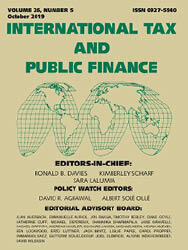Journal Special Issue
Public economics and development action
Tax, and public-sector matters more generally, is high on the agenda of international development. This is clearly reflected in the Sustainable Development Goals (SDGs) approved by the United Nations General Assembly in September of 2015.
SDG17 addresses the need for improving domestic resource mobilization (DRM) directly, and most of the other SDGs cannot be achieved without adequate tax and spending policies. To give just a few examples, SDG10 (reduced inequalities) will depend on government capacity to redistribute income, whereas SDG8 (decent work) requires that tax systems do not create an unnecessarily large burden on economic efficiency.
Together these goals reflect the classic efficiency–equity trade-off, which is at the heart of public economics research and policy analysis. Finally, unless all households have sufficient market income (a highly unlikely scenario), the very first SDG (eradicating poverty) requires the presence of social safety nets, which must be financed by public monies.
This is the backdrop, against which UNU-WIDER organized a WIDER Development Conference on the theme of “Public Economics for Development” in Maputo, Mozambique, 5–6 July 2017. The conference was wide-ranging, including papers and keynote lectures on all areas of public economics, as applied to developing country contexts. This special issue includes five studies from the conference. In what follows, we first reflect briefly on a set of key issues when researching the public sector in developing countries before summarizing the selected articles.
 Join the network
Join the network